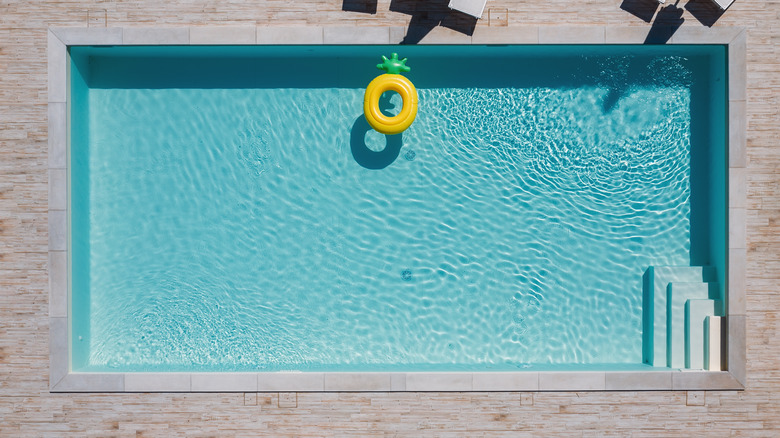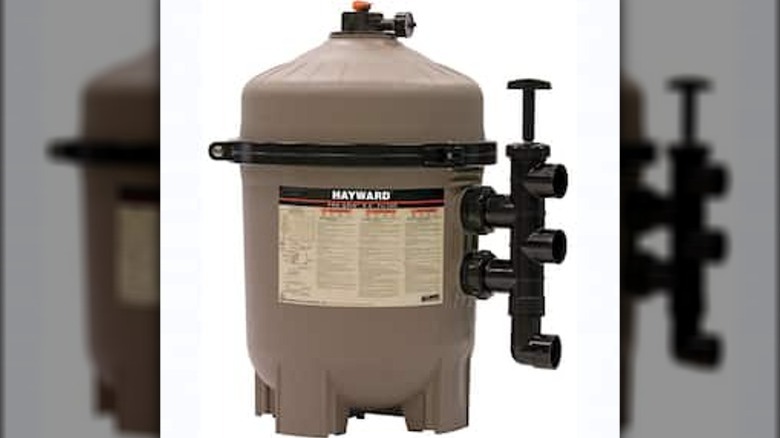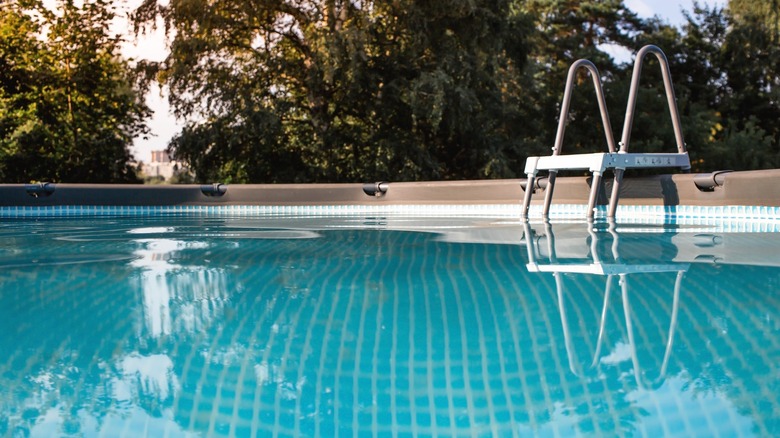DE Pool Filter: What Is It And Is It Worth The Extra Cost?
We may receive a commission on purchases made from links.
Hanging out at the pool is always a mini-getaway from the responsibilities of our day-to-day lives. But without the proper filtration systems, pools collect large amounts of bacteria that can make us quite ill. Treating a pool with chemicals is insufficient; you must choose a quality filtration system to keep the water clean and healthy.
Diatomaceous earth (DE) filtration systems are one of the best options for residential swimming pools as they can capture tiny particles as minuscule as 5 microns. DE is a sedimentary rock turned into powder for use in pool filters to prevent small contaminants from entering the water. However, given how well this type of filter keeps a pool clean, it costs more than more basic options like sand and cartridge filters, ranging between $500 to $1300 with installation. While many would agree the meticulous elimination of bacteria makes it worth the price increase, you should decide for yourself by understanding precisely how it works and compares to other systems.
How does a DE pool filter work?
DE powder is produced from the fossilized remnants of microscopic algae called diatoms. The sedimentary rock is primarily composed of silica and is turned into a fine powder for water purification. This powder accumulates on a filter's grid, blocks bacteria from passing through, and eliminates organic material to prevent bacterial growth. DE is odorless and not chemically reactive, making it safe and practical for residential use. However, before it was used for swimming pools, it was used to purify water in World War II. It is still employed for many other purposes, like agriculture and industrial production.
While DE pool filters will catch more bacteria than other systems, their upkeep can be more taxing. The filter should be backwashed about once a month and taken apart and cleaned more thoroughly every three months. However, you shouldn't allow the discharge to enter streets or storm drains — it will harm the aquatic life that it'll eventually reach. Ideally, you'll want to clean it in the dirt and put any depleted DE in the garbage to limit its impact on local waterways.
Is a DE pool filter worth the cost?
DE pool filters are relatively expensive compared to other options. While a DE system can cost between $500 to $1,300, sand filters range from $200 to $800, and a cartridge system will likely set you back $200 to $1,000. Sand filters are the cheapest option and boast a three to five year lifespan, but they only trap larger bacteria and particulates that are 20 to 40 microns in size. Cartridge filters catch smaller particles at 10 to 15 microns and have a similar lifespan as sand filters. So, while a DE filter can be more costly upfront, it helps that they last up to 10 years with routine cleanings and catch minuscule 3 to 5-micron contaminants. For a DE filter, you can expect to use one pound of powder for every square foot of your pool, with a 25-pound bag costing around $30. This will be a consistent expense you encounter every time you clean the filter.
Spending extra money on a high-end pool filter may seem inconsequential. Still, the Centers for Disease Control found that between 2000 and 2014, more than 27,000 people in the U.S. contracted an illness from recreational bodies of water such as pools and hot tubs. With approximately 500 outbreaks, the protozoa parasite Cryptosporidium was the leading cause, which can survive in chlorine for several days. As such, investing in the best pool filter you can afford is probably wise.


